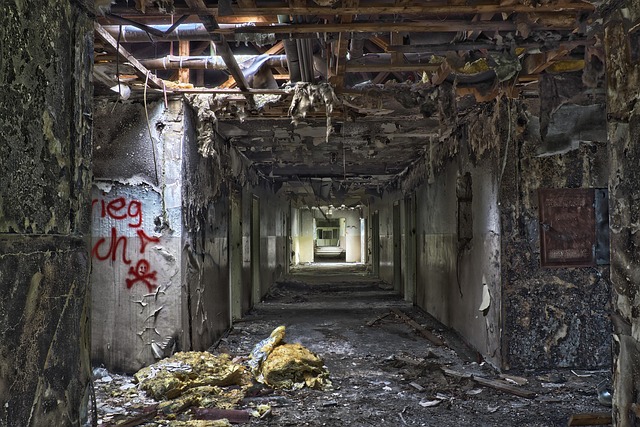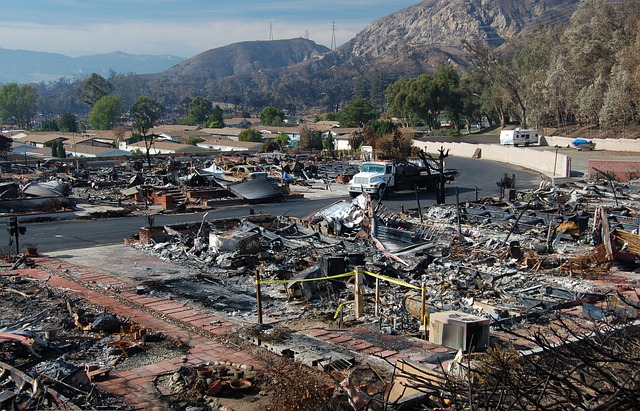Selling a fire-damaged house in Houston requires navigating complex local regulations and understanding strict building codes, especially in older neighborhoods. Homeowners should disclose all significant damage, engage experienced real estate agents familiar with these rules, and conduct thorough inspections to document necessary repairs. By leveraging professional restoration services, avoiding common pitfalls like selling 'as is', and integrating SEO keywords "sell a fire damage house Houston" naturally, you can facilitate a smoother sale in the vibrant Houston real estate market.
“Houston, Texas, is known for its vibrant real estate market, but navigating housing regulations can be complex, especially when dealing with damaged properties. This comprehensive guide delves into the intricacies of Houston’s housing rules, focusing on selling a fire-damaged house. We explore legal considerations and provide a step-by-step process to ensure a smooth transaction. From understanding regulatory requirements to avoiding common pitfalls, this article equips you with the knowledge needed to navigate Houston’s real estate market effectively when selling a fire-damaged home.”
- Understanding Houston's Housing Regulations: A Comprehensive Overview
- Selling a Fire-Damaged House in Houston: Legal Considerations
- The Step-by-Step Process of Navigating Houston's Real Estate Market
- Common Pitfalls to Avoid When Selling Damage Properties in Houston
Understanding Houston's Housing Regulations: A Comprehensive Overview

Houston, as one of the largest cities in the U.S., has a robust and complex housing market. Understanding its regulations is crucial, especially for those looking to sell a fire-damaged house in Houston. The city’s Department of Building and Safety enforces strict guidelines to ensure property safety and quality. These include regular inspections, permits for renovations, and adherence to building codes, particularly in older neighborhoods where structural integrity might be a concern.
When selling a fire-damaged property, it’s essential to familiarize yourself with these regulations. Repairs and restorations must meet specific standards to pass inspection. The process involves obtaining the necessary permits, ensuring materials comply with local codes, and adhering to safety protocols. This comprehensive overview aims to guide homeowners through the intricacies of Houston’s housing regulations, facilitating a smoother transition during the sale of a fire-damaged house in this vibrant city.
Selling a Fire-Damaged House in Houston: Legal Considerations

Selling a fire-damaged house in Houston involves navigating legal considerations that go beyond typical real estate transactions. Houston’s housing regulations mandate that property owners disclose any significant damage, including fire damage, to potential buyers. Failure to do so could lead to legal repercussions, as it’s considered fraudulent omission. It’s crucial to understand the local laws and obtain an accurate assessment of the property’s condition from licensed professionals before putting the house on the market.
When selling a fire-damaged home in Houston, ensure all repairs meet the city’s safety standards and obtain any necessary permits. The buyer’s protection laws in Texas also come into play, ensuring transparency throughout the sales process. Engaging with experienced real estate agents familiar with these regulations is advisable to streamline the process and mitigate potential legal issues associated with selling a fire-damaged property in Houston.
The Step-by-Step Process of Navigating Houston's Real Estate Market

Navigating Houston’s real estate market, especially when selling a fire-damaged house, requires a clear and strategic approach. The process begins with hiring a professional real estate agent who specializes in post-disaster property sales. These agents understand the unique challenges of selling such homes and can guide you through every step.
First, conduct a thorough inspection to assess the extent of damage. Documenting the repairs needed is crucial for accurately pricing your property. Next, prepare your house for showing by making necessary repairs and ensuring it meets current market standards. Marketing becomes more targeted with an agent’s help; they’ll create a compelling narrative around your home’s potential, emphasizing its value beyond the fire damage. For instance, highlighting successful restoration projects in similar homes can attract buyers eager to invest in Houston’s vibrant real estate market.
Common Pitfalls to Avoid When Selling Damage Properties in Houston

When selling a fire-damaged house in Houston, there are several common pitfalls to steer clear of to ensure a smooth and successful transaction. One major trap is attempting to sell the property ‘as is’. Fire damage often leaves behind hidden issues like structural integrity concerns or potential health hazards from asbestos or lead paint, which could deter buyers and lower offers significantly. It’s crucial to thoroughly assess and disclose these issues, or consider repairs to bring the property up to safe and marketable standards.
Another pitfall is neglecting proper decontamination and restoration after a fire. Buyers are increasingly conscious of environmental and health concerns, especially with toxic substances like smoke and soot. Professional restoration services that follow industry standards for cleaning and decontaminating can add value to your property and make it more appealing to potential buyers, avoiding the need to disclose hidden contamination issues later on.
Houston’s housing regulations, as explored in this article, offer both guidance and protection for residents and investors alike. Understanding these rules, particularly when selling a fire-damaged property, is crucial for a smooth transaction. By navigating the real estate market with care, avoiding common pitfalls, and adhering to legal considerations, selling a fire-damaged house in Houston can be a successful process. Remember that, in terms of damage properties, knowledge is power – it enables you to make informed decisions and ensure a positive outcome.






